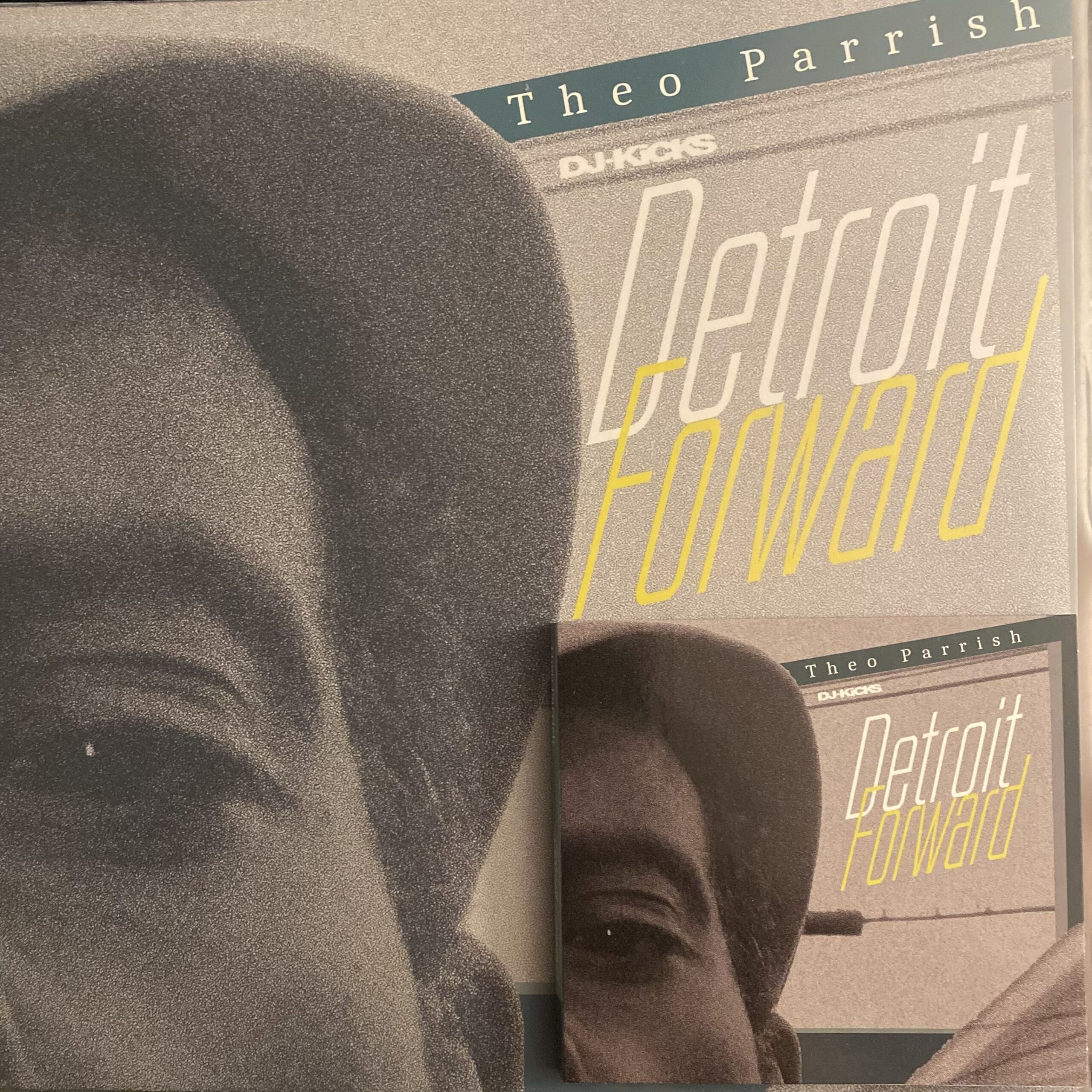
I’ve been a bit lax in reviewing my recent acquisitions, and I apologize for that. I’m just gonna cover a lot of my recent favs in my year end post which is coming up in a couple of weeks. But first I have to address this recent addition to the DJ Kicks series.
When it comes down to it, Theo Parrish was the first artist who allowed me to truly understand house music. Prior to that, I was hip to deeper techno, broken beat, and some other house-adjacent styles, but Theo was the cat who put it together in a way that made something click in my brain. A very big part of that was his very wide-ranging definition of what house music could be. Disco, funk, jazz, hip-hop, and neo soul (amongst other genres!) were all ingredients in what he was doing in his productions and his DJ sets. And he did it all with an edge, an attitude that connected with that same part of me that was interested in punk and experimental music.
At that time, Theo was something of an outsider in the “proper” house scene. A lot of that perception has changed in the two decades plus since I first heard him, but what hasn’t changed is his approach. If you look at the output of his label Sound Signature over the years, you’ll see the same touchstones over and over, but twisted up in a variety of manners.
If you’re very into the label, you might even have some of the various artists CD compilations that would occasionally drop to little to no fanfare (Sound Sampler Pt. 1, Sound Signature Presents: These Songs That Should’ve Been Out On Wax By Now – Part One, Sound Signature Presents: These Songs That Should’ve Been Out On Wax By Now – Part Two). It is these and not his DJ mixes that are most directly connected to Detroit Forward.
These CD compilations were always Detroit music heavy, featured some new artists or new collaborations, and were full of exclusive new music that disregarded tempo or genre. They were also not mixed, and while there are some layered segues on Detroit Forward, it is by no means a standard old beatmixed DJ set. Instead, Theo has leaned into the diversity of music and artists Detroit has to offer and perfected this style of compilation, crafting one of the essential releases of not just this year but this decade so far.
If you’ve been a reader of infinitestatemachine, many of the less widely known artists included here will not be new to you. Meftah, Whodat, Sterling Toles, Raybone Jones, Howard Thomas, Jason Hogans, and more have been reviewed here, along with nearly every release by budding hi tech soul star Jon Dixon and deep Chicago stalwart Specter. On this compilation these are not the cool supporting acts propping up half assed tracks by more commercially approved names… instead they are the highlights of the release, and perhaps even more importantly, they are the essence of what Theo is presenting: the future of Detroit music.
Sound Signature has been staffed recently by a number of younger artists, one of whom is Deon Jamar. Deon is a great DJ with an excellent ear, and he is thanked explicitly on the liner notes for being the source where Theo discovered many of these previously unreleased gems. He also sees the inclusion of one of his own cuts, a hypnotic house jam that is his first widely released track.
Meftah has been seen working behind Sound Signature merch tables, and here he contributes a jazz funk influenced uptempo jam as well as a sick head nodding hip-hop beat for John C. to rhyme over.
Previous Sound Signature releases by Specter, Jason Hogans, Howard Thomas, and Duminie DePorres give you an idea of what to expect from their tracks here: a selection of deep, funky, and weird joints.
Stepping outside of the immediate SS family, killer tracks by Whodat, Ian Fink, and De’Sean Jones connect jazz, funk, and house together, while more beat centric music from names new to me like Donald Lee Roland II, Kesswa, and Raj Mahal add hip-hop and dub stylings. There really are no weak tracks here.
While there is a triple vinyl release, it doesn’t include every track from the double CD, nor does it keep the track order or the segues. So while the wax is obviously great for including some of the best cuts in your own DJ sets, the CDs are the best way to experience it.
All in all, this is about as good as a modern compilation gets for what I’m looking for in music. It has been in constant rotation in the whip for over a month and I’m still not bored with it. Part of it is the diversity of the styles and tempos of the excellent tracks, and part is the masterful arrangement of those disparate tracks into a coherent whole that ends up greater than the sum of its considerable individual parts.
